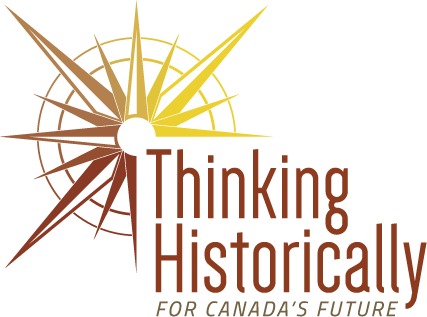About the Project
Challenges/Issues to be Addressed
When history education in Canada was first designed at the end of the nineteenth century, it was part of a nation-building project shaped by competing interests of Anglophone Canada and Francophone Québec. Indigenous peoples and their histories were completely omitted, marginalized, or expressed through settler perspectives. In contemporary Canada, characterized by ethnocultural diversity and efforts to usher in an era of reconciliation with Indigenous peoples, the nation-building purpose of history education no longer holds. The political, social, and cultural complexities we face demand a critical grounding in the past and make history education indispensable. Sophisticated historical thinking requires well-developed facility with the concepts and processes of history, and having students actively construct and understand the past rather than passively receive prepackaged versions of it. Although history and social studies curricula in Canada have been influenced by developments in historical thinking research, we do not know how this research has influenced pedagogy, student learning, assessment, and resources. If Canada is to protect, maintain, and grow its status as a healthy democracy, it requires a well-educated, engaged citizenry with the capacity to engage in critical study of the past. The capacity to “think historically,” which involves both knowing and doing history, helps students make connections between the past and the present and is transferable knowledge that is crucial in a time of “fake news.”
Overall Goals and Objectives of the Partnership
The overall goals and objectives of the partnership are to nurture a community of interdisciplinary and cross-sectoral inquiry among academic historians, researchers based in faculties of education, Indigenous scholars, graduate students, educators in museums, archives, and historic sites, and practicing teachers to:
(1) map the terrain of history education in K–12;
(2) ascertain to what extent history and social studies teaching helps students engage with the key issues or problems facing Canadian society today;
(3) identify and develop evidenced-based practices in history teaching, learning, assessment, and resource development, and evaluate their efficacy in providing powerful and engaging learning experiences for students, particularly in terms of building trans-systemic understanding across knowledge systems;
(4) cultivate and assess the impact of communities of practice that are grounded in theoretical and empirical research on history education pedagogy to promote engaged and critical historical thinking; and
(5) using findings that emerge from the research, make evidence-based policy recommendations for history curriculum, pedagogy, and assessment through proactive connections with ministries of education, faculties of education, museum educators, Indigenous organizations and stakeholders, publishers, other curriculum developers, and practicing teachers.
The partnership brings together various constituencies involved in history education including academic historians, history education scholars working in faculties of education, Indigenous scholars, graduate students and other researchers, museum educators, teachers, ministries of education, policy makers, and local, provincial and national history and heritage organizations.
Thinking Historically for Canada’s Future is supported in part by funding from the Social Sciences and Humanities Research Council.

